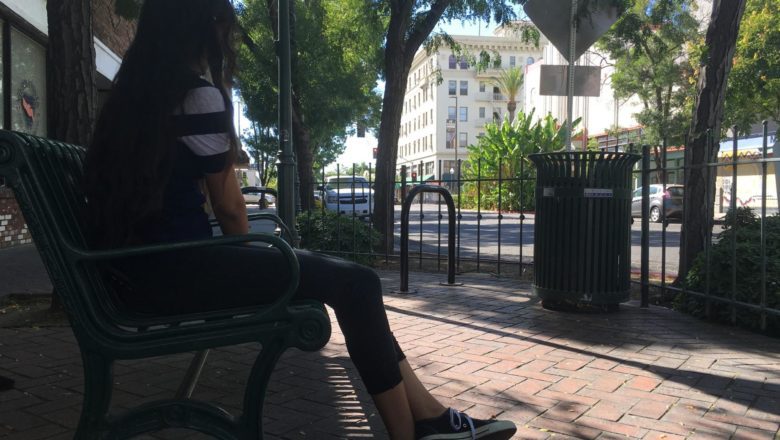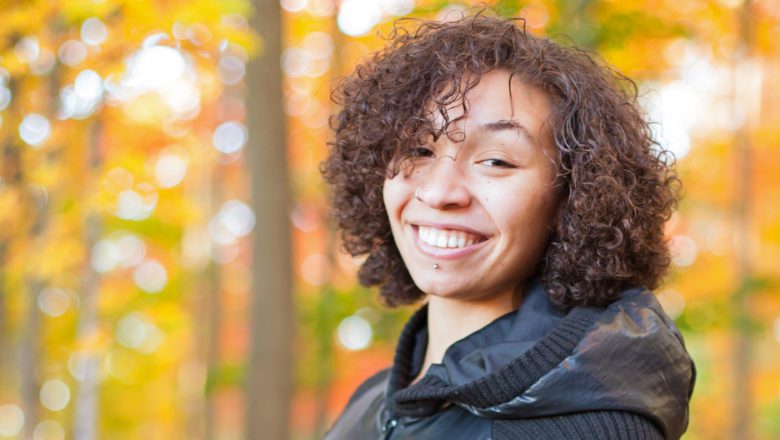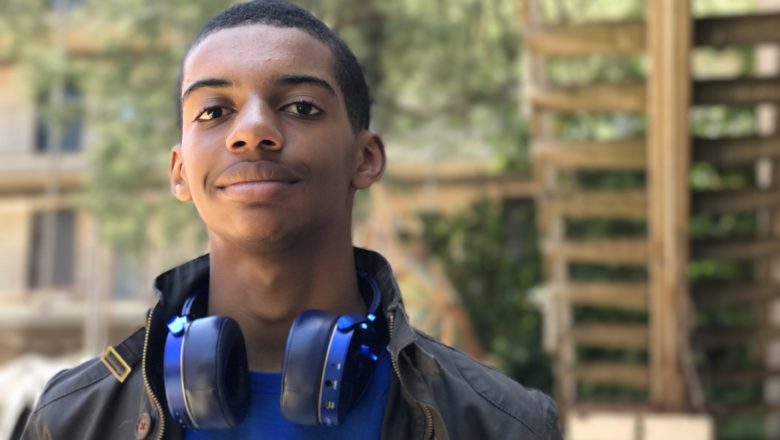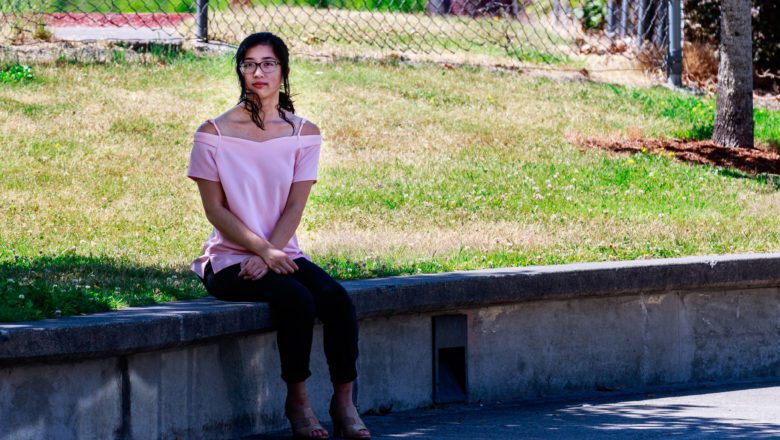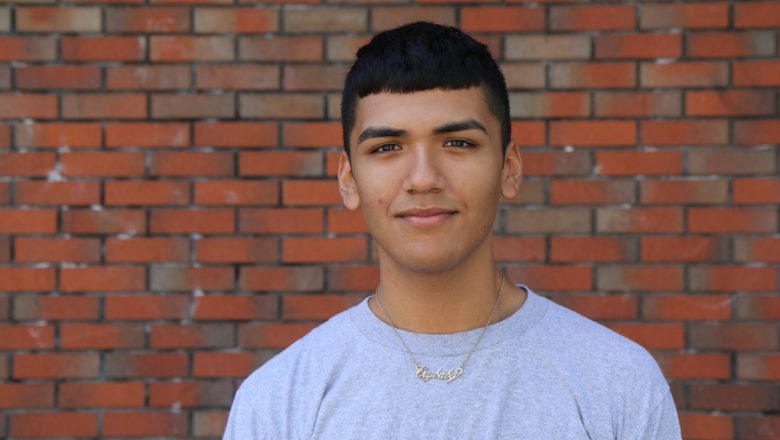Tahir Juba, 19 (Black) – Baltimore, MD
Tech company intern
This summer, I’ve been interning at a tech company that makes mobile apps.
Even before I started my internship, I anticipated the racial dynamic. I rarely see African-Americans in professional STEM environments. Being young, black and Muslim, it’s a little intimidating working in a place without many people of color.
Besides race, the main thing that made me nervous about starting my tech internship was the skill differences between the other workers and me. I haven’t done much with coding or web development before coming into a big company like this. I took one robotics class in high school, and it felt pretty basic. While other people here are computer science majors, I’m mostly self-taught. I watch YouTube instructional videos and check out online learning sites to sharpen my web and coding skills.
But sometimes, I still feel like I really shouldn’t be here.
So I come up with ways to cope. I learned about code-switching in my African-American Literature class, and I try to implement that at work. I use a more professional, standard vocabulary so that I won’t stand out even more, based on the way that I speak. I say, “Good morning,” to people instead of “What’s up?” I never use slang. I ditch my jeans and graphic t-shirts for a button-up shirt and khakis. I dress business-casual even though other interns do not. It helps me feel like I belong.
But I feel lucky. My company has done a lot to make me feel comfortable in this setting, where I could otherwise feel like an outsider. Everyone is very nice and helpful here. They’re open to taking on interns like me who don’t have a lot of experience, and they encourage me to learn on the job. I know a few of the other interns are black. Not that I’ve met them in person, but I’ve seen them in the intern group photo. So I know they exist. That’s comforting.
My long-term goal is to do something in robotics and engineering. I think that robotics could make the world a lot better, especially when it comes to the environment, using solar and clean energy. I know that means I’ll continue to deal with “imposter syndrome.” But I’m hopeful that as more minority people like me go into the tech industry, the more natural it will feel to see people in these jobs who talk the way we talk, joke the way we joke, and dress the way we dress.
Until then, I’ll try to convince myself — and everyone else — that I really do belong here.
Tahir Juba is a part of Wide Angle Youth Media in Baltimore, Maryland and a correspondent for Youth Radio. His essay appeared as part of a Youth Radio collaboration with the New York Times’ Race/Related.
What It’s Like To Be A Teen Farmworker
I like the sounds of the fields, hearing people speaking Spanish and the radio blasting ranchera tunes. It sounds like my childhood.
Race/Related: My First Time Being Called The N-Word, I Was In Elementary School
It was the first time I had ever heard that word. I didn’t know how to react. I had many questions. Should I be upset? Could I call the white student the n-word too? Who invented this word? Do adults use the word?
Race/Related: My Mom Knew I’d Get Stopped By The Police, So She Made Me Practice
Having to spend my childhood rehearsing for the day a police officer would pull me over may sound scary. And I’m aware it’s not something parents of all races feel the need to teach their kids. But the day it actually happened, I was grateful that my mom made sure I was ready.
Race/Related: Even In My Liberal State, People Consider Me The “Other”
The first time someone directed a racial slur towards me… it took me a few moments to process what I had just heard. I was taken aback, but not exactly surprised. After all, there I was, a Filipina reporter covering a Pro-Trump rally.
Race/Related: Before I Came To The U.S., I Didn’t Understand What “Racism” Meant
Back in El Salvador, I didn’t really know what “racism” was. After being in the U.S. for a while, I learned the meaning and impact of that word.
Love For Appalachia, Longing For More Opportunity
Jobs are hard to come by in Appalachia, and chances are slim that I can stay here and be successful at the same time.
Confronting Class Across The Fast Food Counter
It’s always awkward when kids I know come in as customers. The underlying context is clear: Instead of being out having a good time on a Saturday night, I’m at work, serving them.
Headed Back To School, Teens Reflect On Summer Jobs
Four teens reflect on how race and class played a role in their summer employment. Read our latest for The New York Times’ Race/Related newsletter.
“To The Youth Of This City” Have The Cries For Justice In Baltimore Been Heard?
The first day of May seemed to mark a turning point in the story of Freddie Gray, the Baltimore man…
Baltimore Teen Torn Between Family And A Movement
I wish I didn’t have to choose sides. My friends are totally against the police because they think cops are all out to get them. On the other hand, my cousin is a police officer and also a single mother of three.
Baltimore: A Turning Point In This Generation’s Civil Rights Movement?
All over the country, young people like me are having strong reactions to the youth movement in Baltimore. With each young man killed by police, my peers and I feel anger and frustration, but that’s not all. This is our generation’s Civil Rights Movement.
Baltimore Youth React To Trump’s Win: “I honestly thought it was a joke…”
Our friends at Wide Angle Youth Media in Baltimore, Maryland talked with local youth to get their reactions to the election of Donald J. Trump as President of the United States of America.
